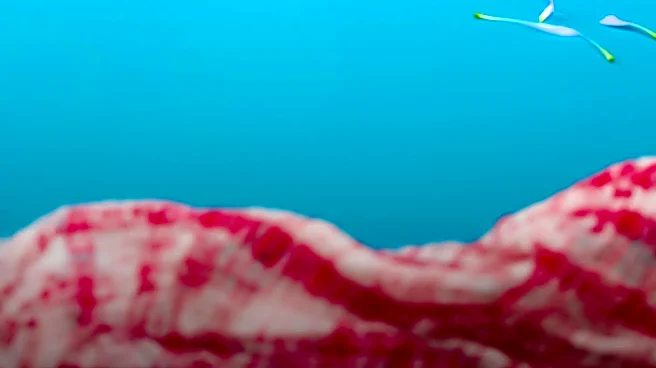What is the story about?
What's Happening?
Dentists are weighing in on the potential benefits and risks of nano-hydroxyapatite toothpaste as a fluoride-free alternative. Nano-hydroxyapatite, a synthetic calcium phosphate compound, is being considered for its ability to remineralize enamel, reduce tooth sensitivity, and enhance whitening. Developed by NASA in the 1970s, it has been used in Japan since the 1990s. While studies show it may be effective, the American Dental Association still recommends fluoride toothpaste due to its proven cavity prevention capabilities. Concerns about nano-hydroxyapatite include potential systemic absorption and lack of long-term safety data.
Why It's Important?
The discussion around nano-hydroxyapatite toothpaste is significant as it offers a potential alternative for individuals seeking fluoride-free options due to allergies or personal preferences. This could impact the dental care industry by introducing new products and influencing consumer choices. However, the lack of long-term studies and potential health risks highlight the need for further research. Dentists emphasize the importance of consulting professionals before switching to ensure the best oral health outcomes.
What's Next?
Further research and long-term studies are needed to fully understand the safety and efficacy of nano-hydroxyapatite toothpaste. The dental industry may see an increase in products containing this ingredient, but consumer education and professional guidance will be crucial. Regulatory bodies may also need to assess the safety of nano-hydroxyapatite in oral care products, potentially influencing market trends and product formulations.
Beyond the Headlines
The rise of nano-hydroxyapatite toothpaste reflects a broader trend towards cleaner, fluoride-free oral care products. This shift may lead to increased innovation in dental care, with companies exploring new ingredients and technologies. Ethical considerations around consumer safety and transparency in product labeling are also important, as consumers seek reliable alternatives to traditional fluoride toothpaste.

















